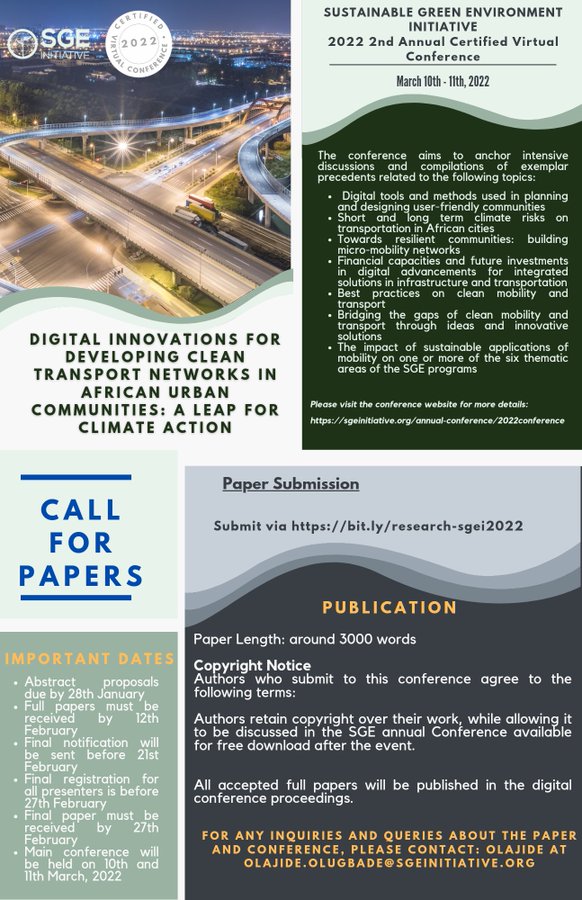SUSTAINABLE GREEN ENVIRONMENT INITIATIVE
Opportunity to Register for FREE
Submit your Paper HereRegister Here
DAYS
HOURS
MINUTES
SECONDS
In a changing world of technological advancements, the climate change reality has stipulated many challenges that threaten the existence and performance of life across various regions. Cities have encountered an evolutionary development of tools and methodological approaches tackling environmental challenges aiming to provide solutions for building resilient communities. The required transformation in African communities to leverage the benefits of sustainable development activities taking place in the transport sector is viable through an integrated user-oriented smart approach. An approach that builds on a microscale of digital connectivity between the users, their physical surroundings, and their social communities through the early phases of planning and development. These plans ought to include future climate risks on micro-mobility infrastructure through nature-based solutions, reduced costs, health benefits, etc., for enhanced resilience.
The SGE Initiative 2022 certified virtual conference aspires to shed light on digital methods and solutions for climate action provided by diverse stakeholders in the mobility and transport sectors to build resilience in African urban communities. The event aims to anchor intensive discussions and compilations of exemplar precedents related to the following topics:

Commissioner, St. John's Transportation Commission, City of St. John's, Newfoundland. | Senior Planner, Department of Municipal and Provincial Affairs, Government of Newfoundland, Canada

Partner and Managing Director, | Transportation Planning and Mobility Engineering | Systematica, Milan, Italy

Chairman of the Board, Sustainable Green Environment Initiative | President, African Network of Green Ambassadors, Nigeria

Director, Environas | Country Director, Sustainable Green Environment Initiative Egypt

Founder, Africa Hope Empire/ Market Analyst, Australian Energy Market Operator, Australia

Group MD/CEO, Global Property & Facilities International Ltd Nigeria

Director, Pan-African Affairs, Sustainable Green Environment Initiative, Nigeria

WSP Managing Director for Transport and Infrastructure.

Executive Director, Sustainable Green Environment Initiative, Nigeria

Director, Education and Training | Country Director, Sustainable Green Environment Initiative, South Africa

Director, Project & Programs, Sustainable Green Environment Initiative, Netherlands

Business Development Manager, Environas, Egypt
